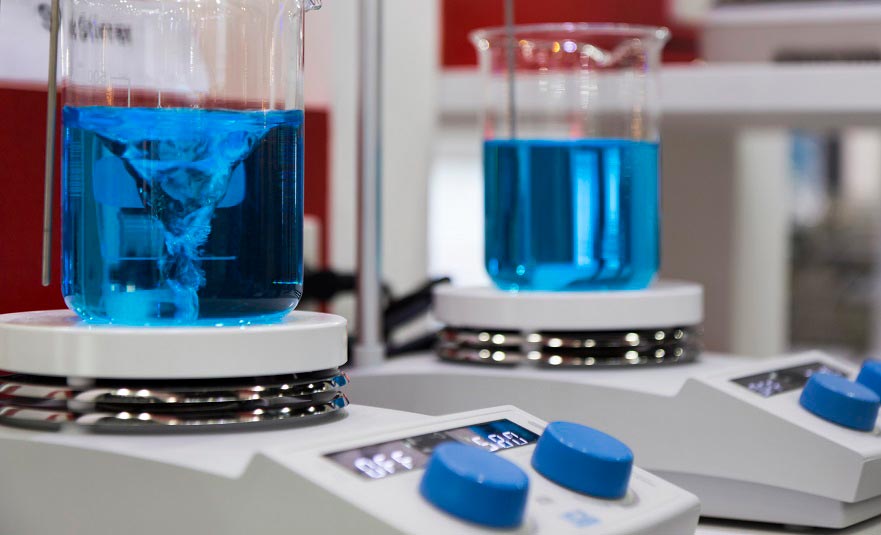The flight of the humble flea – scientists discover new form of magnetic levitation
A new form of magnetic levitation has been discovered by scientists – using a simple tool found in laboratories worldwide.
By Dave Rogers | Published on 9 August 2018
Categories: Press office; Research; School of Science and Technology;

A team from Nottingham Trent University, the Max Planck Institute for Dynamics and Self-Organization and the University of Nottingham focused their work on the magnetic stirrer.
Such stirrers use a magnetic field to cause a bar to spin very quickly, stirring the liquid in which it is immersed.
Since its invention in 1942, it has been known that if a magnetic stirrer is driven too quickly, the stirring bar magnet will hop erratically on the base of the container – which is how it earned its nickname ‘the flea’.
The research team, writing in Physical Review Letters, found that if the viscosity of the liquid was high enough, the flea instead jumps up and levitates within the liquid.
When analysing the motion of the levitating flea, they found that it waggled back-and-forth, pumping fluid out to the sides and stabilising its position. Interestingly, if the viscosity was reduced, the fluid was pumped in the opposite direction and the flea fell.
Dr Dave Fairhurst, of Nottingham Trent University’s School of Science and Technology, said: “The idea of levitation has inspired technology and works of fiction for years in the form of Maglev trains, hover boards and flying broomsticks. Most real-world applications, however, require either highly-specialised equipment, or sub-zero temperatures.
“Here, we have been able to present a new form of magnetic levitation. Our discovery could motivate the design of bi-directional pumps, improve our understanding of effective swimming methods and provide a new levitation route for container-less storage or friction-less transport. However, it’s unlikely to make flying broomsticks a reality.”
Notes for Editors
Press enquiries please contact Dave Rogers, Public Relations Manager, on telephone +44 (0)115 848 8782, or via email; or Chris Birkle, Public Relations Manager, on telephone +44 (0)115 848 2310, or via email.
Nottingham Trent University (NTU) was named University of the Year 2017 at the Times Higher Education Awards, and Modern University of the Year in the Times and Sunday Times Good University Guide 2018. These awards recognise NTU for its high levels of student satisfaction, its quality of teaching, its engagement with employers, and its overall student experience.
NTU has been rated Gold in the Government’s Teaching Excellence Framework – the highest ranking available.
NTU is one of the largest UK universities. With 30,000 students and more than 4,000 staff located across four campuses, the University contributes £900m to the UK economy every year. It is one of the UK’s most environmentally friendly universities, containing some of the sector’s most inspiring and efficient award-winning buildings. 96% of its graduates go on to employment or further education within six months of leaving.
Our student satisfaction is high: NTU achieved an 88% satisfaction score in the 2018 National Student Satisfaction Survey.
The University is passionate about creating opportunities and its extensive outreach programme is designed to enable Nottingham Trent to be a vehicle for social mobility. NTU is among the UK’s top five recruiters of students from disadvantaged backgrounds.
NTU is home to world-class research, and won The Queen’s Anniversary Prize in 2015 – the highest national honour for a UK university. It recognised the University’s pioneering projects to improve weapons and explosives detection in luggage; enable safer production of powdered infant formula; and combat food fraud.
With an international student population of over 3,000 from around 100 countries, the University prides itself on its global outlook.